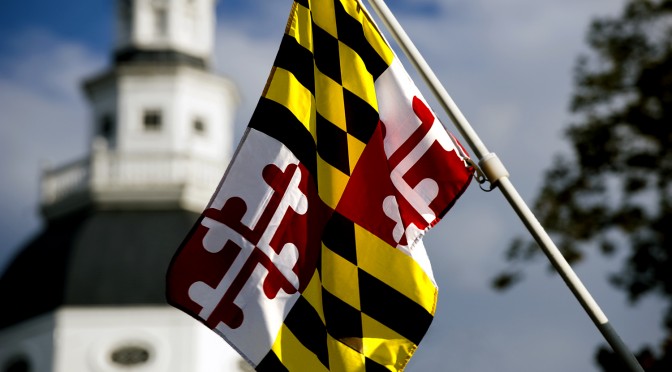Heather Mizeur naively campaigned for the governorship of Maryland by supporting universal pre-Kindergarten and paying for it by legalizing marijuana. Her support came from NORML and the marijuana industry.
What good does earlier education do for child welfare when you introduce a whole set of new problems?
Look at what is going on in Colorado and Washington, and the unusual types of child endangerment that have gone on with legalization. Many very young children have gotten into marijuana edibles which look like cookies and candy.
“Encouraging marijuana commercialism and consumption to fund and support education are two inconsistent goals,” explained Diane Carlson, a co-founder of Bravetracks, a non-profit devoted to encouraging youth activity, employment and engagement in Colorado. “Even before Coloradans voted in 2012 to legalize marijuana, Denver, where marijuana was first commercialized, had some of the highest youth use rates in the nation,” she said.
“The THC content of marijuana is extremely potent with levels reaching 20% and above in Colorado, due to competition in the industry. Highly potent pot has become incredibly commercialized here and yet our kids have been told it’s benign. Increased access and use is a huge issue for Colorado teens who have no idea how such highly potent products can impact their health and their futures,” according to Carlson.
Since legalization, the pot problem only seems to be getting worse. “Disturbingly, Colorado kids will suck on lollipops, chew on gummy bears, or munch on granola bars without anyone knowing highly potent marijuana is being consumed. They have ‘vaped’ on pens, asthma inhalers or highlighters loaded with a concentrated form of THC that can go undetected in class.”
One high-school teacher in Denver, who wishes to remain anonymous, exclaimed, “Our job is so difficult and there are so many challenges to educating kids well in the best circumstances. She added, “So why did the state add this other layer of challenge to our jobs and make it harder for our students to achieve success?”
Marijuana Money
“Where Commerce Meets Revolution” is how the Marijuana Policy Project (MMP) describes the Cannabis Business Summit held yesterday and today in Denver. This title leaves no doubt that the MMP and other pot advocacy groups are about the money.
Amendment 64 passed in Colorado despite warnings of the teachers’ union and a persuasive letter from teacher Christina Blair to the Huffington Post. It is probably because big money paid for the win in Colorado, with most of that money coming from the industry’s out-of-state lobbying groups.
One year later, by December 2013, school administrators and law enforcement noticed the changes that came into the schools. Colorado Governor John Hickenlooper has warned the governors of other states not to follow Colorado’s example.
Revolutionary ideas grab attention, but Heather Mizeur didn’t win her primary. She only promoted an idea which was heard all over the nation’s capital region.
Most likely the children who heard Mizeur’s TV commercials about marijuana will end up believing marijuana is completely harmless and could indeed be tied to education.
The pot industry regularly promotes it as a way to fund education. It is an ironic that they would suggest a solution that only makes a problem worse.
Beware that many local candidates and representatives in Congress are taking money from the marijuana industry. We need to watch out for the fallout from this “green rush.” It could be worse than the mess left by the mortgage industry.
Marijuana and Teens
With the push to legalize and expansion of medical marijuana, children and teens have gained an erroneous perception that pot is harmless, studies show. Surveys of teens indicate use would definitely go up, if marijuana is legalized.
According to David G. Evans, executive director of the Drug Free Schools Coalition, “Studies indicate that usage will increase to levels near between those of tobacco and alcohol users.” The annual survey show that all teen marijuana use, and daily marijuana use, have consistently gone up over the last five years. As a nation and for our individual children, we need to be concerned.
There is a connection to regular marijuana usage, gaps in college education and dropping out of high school, which often hinders future success. “Chronic/heavy marijuana users are twice as likely to experience gaps in college enrollment as minimal users, ” according to Dr. Robert DuPont, Director of the Institute for Behavior and Health, in Rockville, MD.
Marijuana use in the young often creates a-motivational syndrome and apathy, in addition to and apart from the affects of addiction. It is not a way of saying “yes to life, yes to love, yes to opportunity and yes to education,” as recommended by the Pope Francis in a recent address at the International Drug Enforcement Conference in Rome.
Dr. DuPont and Dr. Jeffrey Lieberman, chair of the Department of Psychiatry at Columbia University, wrote an article to suggest that changing policy necessitates a large, multi-year study using technology that has developed over the past 2 decades. The study would aim to understand more about the effects of marijuana on the adolescent brain. Researchers at Northwestern University recently published their studies indicating the changes on specific parts of the brain, and the National Institute of Drug Abuse (NIDA) has written about some of those findings.
The American Academy of Child and Adolescent Psychiatry gives a warning about marijuana and young minds: “Marijuana’s deleterious effects on adolescent brain development, cognition, and social functioning may have immediate and long-term implications, including increased risk of motor vehicle accidents, sexual victimization, academic failure, lasting decline in intelligence measures, psychopathology, addiction, and psychosocial and occupational impairment.”


